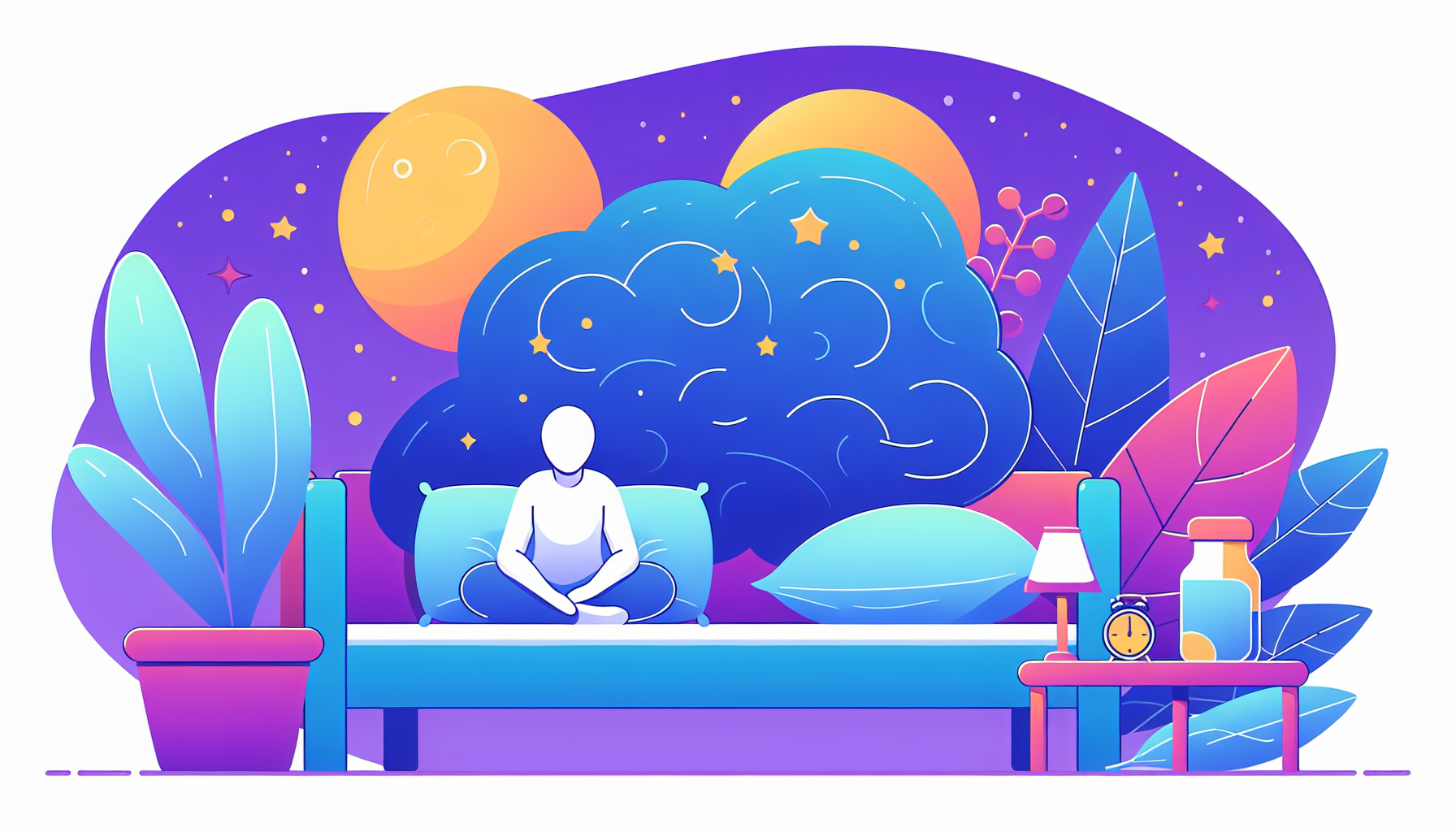Sleep is often underestimated in its significance to our overall health and well-being. In our fast-paced society, sleep is frequently sacrificed in favor of productivity, social commitments, and endless to-do lists. However, the importance of sleep, especially for mental health, cannot be overstated. This blog explores the critical role sleep plays in mental well-being and offers actionable tips on how to improve your sleep quality for a healthier mind.

Understanding the Connection Between Sleep and Mental Health
Sleep serves as a restorative process for the body and mind. During sleep, the brain undergoes vital processes that help consolidate memories, regulate emotions, and clear toxins that accumulate during waking hours. Research has shown a strong link between sleep and mental health; poor sleep can lead to or exacerbate various mental health issues, including anxiety, depression, and stress.
1. Impact on Mood: Sleep deprivation can lead to irritability and heightened emotional responses. Lack of sleep disrupts the balance of neurotransmitters like serotonin and dopamine, which are crucial for mood regulation. Individuals who consistently get inadequate sleep are at a higher risk for developing mood disorders.
2. Cognitive Function: Sleep plays a significant role in cognitive processes, including attention, problem-solving, and decision-making. Insufficient sleep can impair these functions, making it difficult to concentrate and leading to decreased productivity. Over time, chronic sleep deprivation can contribute to cognitive decline.
3. Stress Response: Sleep is essential for regulating the body’s stress response. Insufficient rest can lead to an overactive stress response system, making individuals more susceptible to anxiety and stress-related disorders. A good night’s sleep helps recalibrate the body’s stress hormone levels, allowing for better stress management.
The Science of Sleep: Sleep Stages and Their Functions
Understanding the stages of sleep can shed light on why good sleep is essential for mental health. Sleep consists of several cycles that alternate between Non-REM (Rapid Eye Movement) and REM sleep.
– Non-REM Sleep: This stage includes three phases, with deep sleep (Stage 3) being the most restorative. During deep sleep, the body repairs tissues, strengthens the immune system, and restores energy levels. This stage is crucial for physical recovery and overall health.
– REM Sleep: This stage is where dreaming occurs and is vital for emotional regulation and memory consolidation. During REM sleep, the brain processes emotions, which can help with problem-solving and creativity. It is during this stage that the brain works to integrate new information and experiences.
Both Non-REM and REM sleep are essential for optimal mental functioning, and disruptions in these cycles can lead to various mental health issues.
Signs of Poor Sleep and Its Effects
Recognizing the signs of poor sleep is the first step toward improving sleep quality. Common indicators include:
– Difficulty falling asleep or staying asleep
– Waking up feeling unrefreshed
– Increased irritability or mood swings
– Difficulty concentrating or memory issues
– Fatigue during the day
If you find yourself experiencing these symptoms, it may be time to reassess your sleep habits and make changes to improve your overall mental health.
Tips for Getting Better Rest
Improving sleep quality is a multifaceted approach that includes lifestyle changes, nighttime routines, and environmental adjustments. Here are some practical tips that can help you achieve better rest:
1. Establish a Sleep Schedule: Going to bed and waking up at the same time every day can help regulate your body’s internal clock. Consistency reinforces your body’s natural sleep-wake cycle, making it easier to fall asleep and wake up feeling rested.
2. Create a Relaxing Bedtime Ritual: Establishing a calming pre-sleep routine can signal your body that it’s time to wind down. This could include activities such as reading, gentle stretching, or meditation. Avoid stimulating activities, such as watching TV or scrolling through your phone, as they can interfere with your ability to relax.
3. Optimize Your Sleep Environment: Your bedroom should be conducive to sleep. Keep the room dark, quiet, and cool. Consider using blackout curtains, earplugs, or a white noise machine to create an ideal sleep environment. An uncomfortable mattress or pillow can also disrupt sleep, so invest in bedding that supports your comfort.
4. Limit Caffeine and Alcohol: Both caffeine and alcohol can interfere with sleep quality. Try to limit caffeine intake in the afternoon and evening, and while alcohol may help you fall asleep initially, it can disrupt sleep cycles later in the night.
5. Stay Active: Regular physical activity can help you fall asleep faster and enjoy deeper sleep. Aim for at least 30 minutes of moderate exercise most days, but try to avoid vigorous workouts close to bedtime, as they may have the opposite effect.
6. Manage Stress and Anxiety: Incorporating stress-reduction techniques into your daily routine can help you manage anxiety. Practices such as mindfulness, yoga, and deep-breathing exercises can promote relaxation and improve sleep quality.
7. Limit Screen Time Before Bed: The blue light emitted by screens can interfere with the production of melatonin, the hormone responsible for regulating sleep. Aim to turn off electronic devices at least an hour before bedtime.
8. Seek Professional Help if Needed: If you continue to struggle with sleep despite making lifestyle changes, it may be helpful to consult a healthcare professional. Conditions such as insomnia, sleep apnea, or other sleep disorders may require specialized treatment.
Conclusion
The importance of sleep for mental health cannot be overlooked. Prioritizing quality sleep is essential for emotional regulation, cognitive function, and overall well-being. By implementing effective sleep strategies, you can significantly enhance your mental health and resilience. Remember, a good night’s sleep is not just a luxury; it is a necessity for a healthy mind and body. Make sleep a priority, and reap the benefits of improved mental health and quality of life.
AI-Assisted Content Disclaimer
This article was created with AI assistance and reviewed by a human for accuracy and clarity.





Leave a Reply